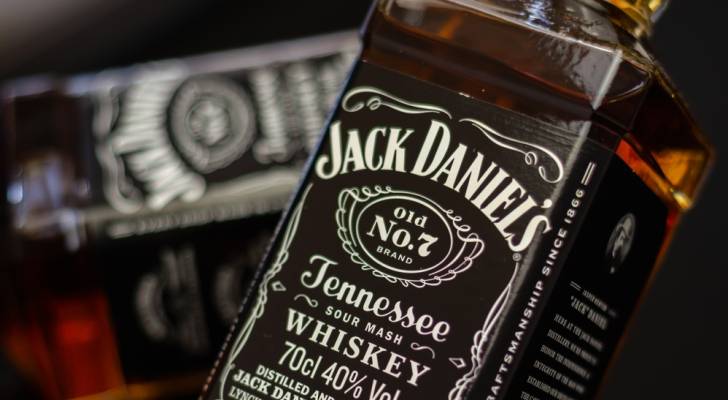
In the escalating trade tensions between the United States and Canada, the power of Canada to respond with ‘elbows up’ is proving to have impact, epecially when it comes American alcohol producers.
Of all of the liquors we get up here from south of the border, few are as iconic as Jack Daniel’s Whiskey. Jack Daniel’s is more than just a whiskey brand — it’s a symbol of American tradition and Southern heritage. And it’s no longer being sold in Canada is a symbol in its own right, and its CEO has taken notice.
Lawson Whiting, CEO of Brown-Forman, the parent company of Jack Daniel’s, expressed deep concern on a post-earnings call, over Canadian provinces removing US liquor from store shelves, stating it is "worse than a tariff" and a "disproportionate response" to levies imposed by the Trump administration.
Canadian provinces halt US alcohol sales
Several Canadian provinces, including Ontario and New Brunswick, have ceased the import and sale of US-made alcohol in retaliation to President Trump’s 25% tariffs on Canadian goods. This decision led to the removal of American products, such as Jack Daniel’s, from store shelves.
Ontario Premier Doug Ford ordered the Liquor Control Board of Ontario (LCBO) to remove US alcohol from its shelves and catalogues. The LCBO, one of the largest alcohol buyers globally, had previously offered 3,600 US products from 36 states.
Impact on US alcohol producers
While Canada accounts for approximately 1% of Brown-Forman’s sales, the removal of products from shelves directly impacts the company’s revenue. Whiting emphasized that this action is more detrimental than tariffs, as it entirely eliminates sales in the affected regions.
The broader implications for US alcohol producers are significant. The United States exported $1.6 billion worth of spirits globally in 2023, with Canada being a key market. The removal of American alcohol products from Canadian shelves threatens this revenue stream and could lead to a surplus of unsold inventory, affecting production and employment within the industry.
Contrasting alcohol distribution systems
The impact of these measures is further complicated by the differing alcohol distribution systems in Canada and the US. In Canada, alcohol sales are predominantly controlled by provincial government agencies, such as the LCBO in Ontario. These entities decide which products to stock, and their decisions directly influence market availability. As a result, a government-mandated removal of US products leads to an immediate and comprehensive absence from the market.
In contrast, the US operates a more decentralized system, with private retailers playing a significant role in alcohol distribution. This structure means that any retaliatory measures by the US might not result in as immediate or uniform a removal of Canadian products from shelves, potentially leading to less direct impact on Canadian alcohol producers.
In other words, Americans, at first glance, may not see the removal from store shelves to be as significant as it really is. Only a closer look and an understanding of the reality that these shelves are the only source to purchase alcohol for Canadians, will help pull the curtain on why a tariff would be far less impactful.
Potential long-term consequences
The removal of US alcohol products from Canadian shelves could have lasting effects on brand loyalty and market share. Canadian consumers may turn to alternative products, leading to a potential decline in demand for American brands even after trade tensions ease. Also, prolonged absence from the market could encourage Canadian retailers to establish stronger relationships with non-US suppliers, further challenging American producers’ efforts to regain shelf space in the future.
The current trade dispute between the US and Canada has led to significant challenges for American alcohol producers. The removal of products from Canadian shelves not only impacts immediate sales but also poses long-term risks to market presence and consumer loyalty. As the situation evolves, stakeholders on both sides of the border will need to navigate these complexities to mitigate financial losses and restore stable trade relations. And, in the meantime, while the US takes a shot at us, Canadians will be taking a shot of something other than Jack Daniel’s.
This article Hit the road Jack: Why removing Jack Daniel’s from store shelves is "worse than a tariff" originally appeared on Money.ca
This article provides information only and should not be construed as advice. It is provided without warranty of any kind.